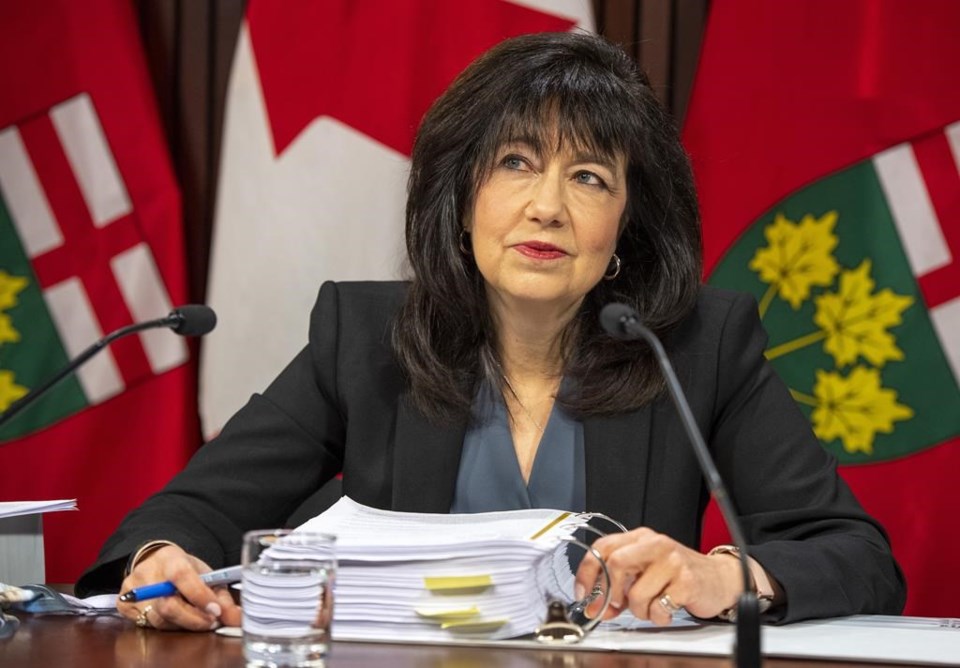TORONTO — Leaders of Ontario's opposition parties have asked the auditor general to probe the province's moves to open up parts of the Greenbelt to developers.
Incoming NDP Leader Marit Stiles, Liberal Leader John Fraser and Green Party Leader Mike Schreiner wrote a letter to Bonnie Lysyk asking her to conduct a value-for-money assessment of the government's decision to remove 7,400 acres from the protected Greenbelt while adding land elsewhere.
They also would like Lysyk to assess the financial and environmental impacts of the moves.
"The removal of protections from these lands has instantly shifted wealth to property owners, who have likely benefited substantially from the rezoning of this land from undevelopable agricultural land to developable land," they wrote.
Media reports have suggested that some prominent developers who are Progressive Conservative donors bought Greenbelt land in the last few years despite the province's previous pronouncements it wouldn't be developed.
One purchase happened as recently as September, according to investigations by the CBC, The Globe and Mail, the Toronto Star and the Narwhal.
Lysyk said she is looking into the request by the opposition leaders and will make a decision next week on whether to investigate or not.
Premier Doug Ford and Housing Minister Steve Clark have both said they did not tip off developers prior to their Greenbelt announcement.
"I think we're very transparent," Ford said at a press conference Thursday. "At the end of the day, we need more homes."
In November, the province made moves to remove about 7,400 acres in 15 different areas from the Greenbelt, which was created to protect environmentally sensitive regions from development.
The province said the removal of land was necessary in order to build at least 50,000 homes as part of its goal to build 1.5 million homes over 10 years.
The opposition leaders say about 4,500 acres in the land moves formerly belonged to Duffins Rouge Agricultural Preserve that had easements protecting the land as farmland in perpetuity.
"These easements represented a multi-billion-dollar public investment in Ontario's natural and agricultural systems by the people of Ontario, who gave up enormous profits when the Ontario government sold these lands at discounted prices on the condition that they forever remain farmland," the leaders wrote to Lysyk.
"The removal of these easements means these speculative profits will now flow to private landowners, with no compensation to the public."
In 2018, Ford backtracked on an election pledge to allow housing in the Greenbelt after public backlash. He also made a vow in 2020 not to "touch" the Greenbelt.
In 2021, when announcing plans to expand the Greenbelt, the housing minister said he would not cut the protected area or do a land swap.
The government's recent moves have sparked widespread criticism and spurred protests throughout the province.
The opposition leaders argue the government's actions will irreversibly harm the environment.
"Collectively, we are very concerned with the impact that the removal of these Greenbelt lands will have on the future well-being of our province," the leaders wrote.
Ontario created the Greenbelt in 2005.
This report by The Canadian Press was first published Jan. 12, 2023.
Liam Casey, The Canadian Press



